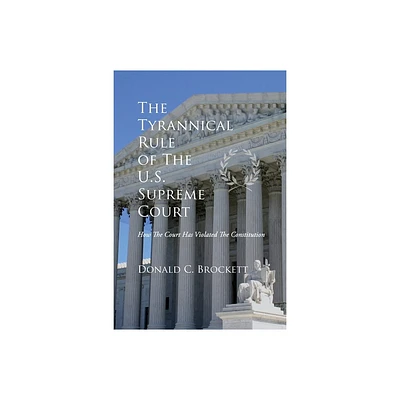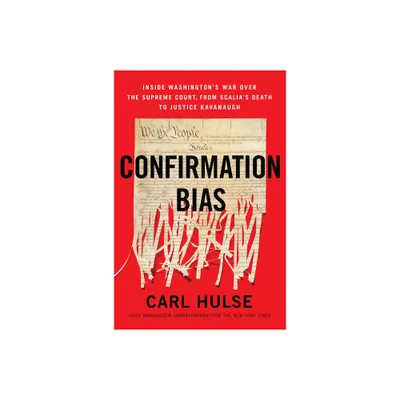Home
Supreme Bias: Gender and Race U.S. Court Confirmation Hearings
Loading Inventory...
Barnes and Noble
Supreme Bias: Gender and Race U.S. Court Confirmation Hearings
Current price: $120.00


Barnes and Noble
Supreme Bias: Gender and Race U.S. Court Confirmation Hearings
Current price: $120.00
Loading Inventory...
Size: Hardcover
*Product Information may vary - to confirm product availability, pricing, and additional information please contact Barnes and Noble
In
Supreme Bias
, Christina L. Boyd, Paul M. Collins, Jr., and Lori A. Ringhand present for the first time a comprehensive analysis of the dynamics of race and gender at the Supreme Court confirmation hearings held before the Senate Judiciary Committee. Drawing on their deep knowledge of the confirmation hearings, as well as rich new qualitative and quantitative evidence, the authors highlight how the women and people of color who have sat before the Committee have faced a significantly different confirmation process than their white male colleagues. Despite being among the most qualified and well-credentialed lawyers of their respective generations, female nominees and nominees of color face more skepticism of their professional competence, are subjected to stereotype-based questioning, are more frequently interrupted, and are described in less-positive terms by senators. In addition to revealing the disturbing extent to which race and gender bias exist even at the highest echelon of U.S. legal power, this book also provides concrete suggestions for how that bias can be reduced in the future.
Supreme Bias
, Christina L. Boyd, Paul M. Collins, Jr., and Lori A. Ringhand present for the first time a comprehensive analysis of the dynamics of race and gender at the Supreme Court confirmation hearings held before the Senate Judiciary Committee. Drawing on their deep knowledge of the confirmation hearings, as well as rich new qualitative and quantitative evidence, the authors highlight how the women and people of color who have sat before the Committee have faced a significantly different confirmation process than their white male colleagues. Despite being among the most qualified and well-credentialed lawyers of their respective generations, female nominees and nominees of color face more skepticism of their professional competence, are subjected to stereotype-based questioning, are more frequently interrupted, and are described in less-positive terms by senators. In addition to revealing the disturbing extent to which race and gender bias exist even at the highest echelon of U.S. legal power, this book also provides concrete suggestions for how that bias can be reduced in the future.


















